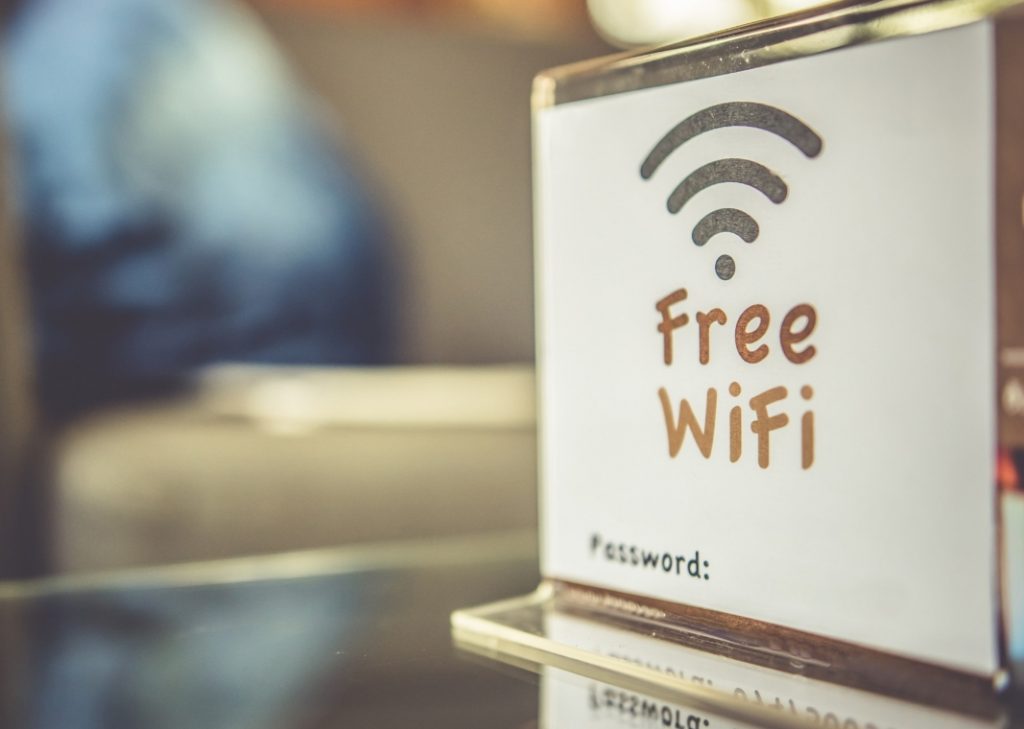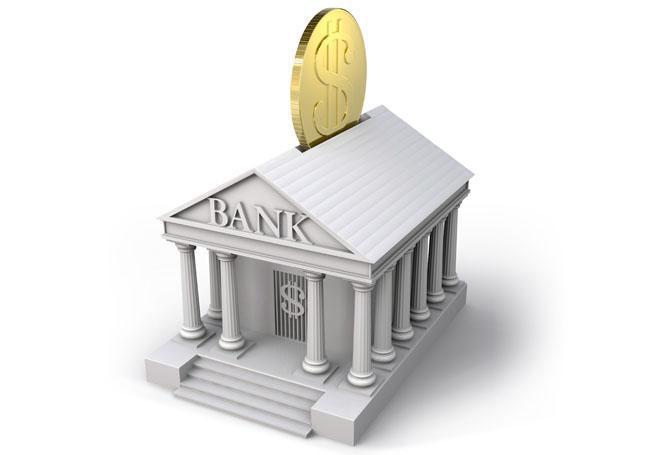Can Hotels See What Websites I Visit?
Last updated on June 10th, 2022 in VPN

Can hotels see what websites I visit ? Nowadays, each hotel you stay at must provide WiFi connectivity. We’ve reached a stage where we expect to be able to access the internet no matter where we are on the globe, so for most people, this perk is a must-have when traveling.
But, given how important it is, you can’t but wonder about our privacy. What websites do hotels have access to? Is that data hidden from their network administrators?
Let’s see what happens.
Table of contents
You’re not going to like the answer, but they most definitely can.
The truth is, when you use hotel WiFi to access the web, you’re utilizing their network. It’s where all of your connections go. So network administrators can quickly track them and know where they’re going.
What exactly does that imply? Can hotel wifi see your history?
They are aware of the IP address to which you connect. They can also observe DNS resolutions, so they know which website domain you visit. It appears like this from their perspective:
Even if they employ HTTPS encryption, they can see what sites you visit. Sure, they won’t know what information you give or receive. They’ll still be able to detect what domains you visit and – in certain cases – what exact web pages you browse.
Can hotel wifi see what you search? Yes, that would be an example of it.
Hotel Wi-Fi security is notoriously inadequate, and the reason is simple: your hotel’s purpose is to provide you with convenience and comfort, not cybersecurity. As a result, they usually make little to no attempt to defend their guest network.
In certain circumstances, you’ll be prompted to provide your room number and a password set for that specific room before you can use the hotel’s Wi-Fi. However, most of the time, one weak password is held responsible for whole network security, which is essentially the same as having no password at all. Some hotels do not require authorization and allow anyone to join their network.
Because of the lack of basic security and data encryption, as well as the enormous number of possible victims, wireless networks are vulnerable to cyber assaults, identity theft, and data spying. So you can be pretty sure that of the fact if can hotels see what websites I visit.
The potential of a cybercriminal to act as a covert mediator between your device and the connecting point poses the greatest threat to your privacy. In this circumstance, all data you send or receive over the Internet is intercepted by the hacker.
Malicious actors, such as the infamous DarkHotel group, like to disseminate malware using insecure hotel Wi-Fi networks. For more than a decade, this organization has effectively targeted business travelers. Hackers send infected files using phishing emails crafted uniquely for each victim and tailored to be highly convincing by using hotel Wi-Fi in premium hotels around the world.
In other words, every time you connect to an unprotected wireless network, your personal information is at risk of being revealed. If a cyber thief notices your hotel’s Wi-Fi, they can employ a variety of ways to compromise your privacy.
Can hotel wifi see your history? Yes, they can either themselves or if they get hacked.

Certainly not. If you connect to an unsecured Wi-Fi network, hostile third parties, generally known as hackers, can watch every action you take online. As a result, anyone who can intercept an unprotected hotel Wi-Fi connection can listen in on you and type your passwords, login credentials, banking information, and other sensitive information.
Having these details taken does not sound like an ideal vacation situation. So, unless you’re using dependable encryption technologies to secure your data, don’t check your bank account on hotel Wi-Fi
The question remains the same – can hotels see what websites I visit ? Although it is difficult to establish whether hotels monitor their networks, one thing is certain: it is feasible. Hotel servers, like other servers, preserve a log of data transactions made by their users. Your surfing data (IP addresses you contact, login/logout times, time spent on a website) and some of your personal information (name, surname, room number) are stored in that file and therefore accessible.
While the contents of your conversations are normally not visible to hotel management, they may quickly discover what websites you visit and how much time you spend online. Is this what you mean by “private browsing”?
Unless management has specifically requested that the IT team track WiFi traffic, they are unlikely to do so. You probably don’t have much to worry about unless you’re a high-profile target.
That isn’t to say you should disregard it. Even if the hotel’s personnel does not monitor all connections, the hotel’s servers nonetheless store records with a lot of personal information.
For example, they keep track of your transactions and browsing patterns, as well as your name or the ID provided to you by the server Plus your room number.
Not only is that a significant invasion of privacy, but what if that information is stolen in a data breach?
Who knows how long the hotel keeps it, and because hackers love to target the hospitality industry, anything can go wrong. Following a massive data breach, the personal information of over 142 million MGM hotel guests was stolen and sold on the dark web.
Using mobile data instead of the hotel’s WiFi is the easiest and fastest option. Instead, you’ll surf the web through your mobile provider’s network. You may always use your smartphone to build a hotspot and connect your laptop or PC to it if you require web access.
Of course, having an unlimited or extremely large data plan is required. You’ll also be switching from one type of tracking to another. Your web traffic will no longer be monitored by the hotel’s IT staff. However, because you’ll be using their network, your cell provider’s network administrators will handle it.
Using a VPN like HideIPVPN is a far better and more efficient means of preserving your privacy on hotel WiFi.
What VPN does for you in this case:
A virtual private network (VPN) actually protects you significantly more than unsecured Wi-Fi. You can securely surf on public or any other sort of network if you have a VPN installed.
Between your device and a remote VPN server, a virtual private network creates an encrypted virtual tunnel. The website connects with the VPN server, and the server communicates with your device through this server. Nobody can see the website you are browsing or what data you share online because this interaction is encrypted. They just have access to the fact that you are using a VPN.
Check out this comprehensive VPN connection guide if you want to learn more about how a virtual private network (VPN) works. It will respond to all of your inquiries.
Unfortunately, the hotel Wi-Fi in your room isn’t very secure. Hotel Wi-Fi is as dangerous as it is useful. As previously stated, hotel Wi-Fi hotspots are frequently insecure, providing fertile ground for cybercriminals.
To avoid any hazards, we recommend utilizing them exclusively with suitable protection. Your closest buddy here is a VPN (virtual private network). No one will be able to intercept your traffic because it will be encrypted.
Yes. They can easily employ firewalls to limit your connections to those sites because they can see what sites you visit.
Essentially, network administrators create traffic management rules that state, “No, your IP address cannot connect to Facebook.com or accept traffic from there.”
Why would they do something like that?
Who knows, maybe the hotel is required by law to ban certain websites (like pornographic or gambling websites). Alternatively, the hotel may block streaming sites, forcing you to rely on pay-per-view instead.
It doesn’t really matter why. What matters is how you can get around that problem. Fortunately, the remedy is straightforward: simply utilize a VPN. Your connections are routed through a VPN server, and you converse with the internet using a new IP address. As a result, the firewall is no longer able to control your traffic.
Can hotels see what websites I visit? But they can do more than that. Their administrators can analyze your data packets to see what sites or web apps you’re accessing as long as your connections flow through their network. They can selectively limit your bandwidth using that knowledge to reduce your speeds.
So, if you’re watching Netflix, you might receive really slow speeds, but when you’re doing something else online, you might get decent speeds.
This doesn’t happen very often because hotels can face significant fines for such behavior. Use a VPN, though, if you want to be proactive and prevent bandwidth limiting right away. It will encrypt your data, making it impossible for network administrators to figure out which internet services you’re utilizing.
They can do that, and we’ve seen people complain about it on Reddit (particularly business travelers).
IPSec ports appear to be largely blocked by network administrators. Your connection will be restricted if you utilize VPN protocols that rely on them (IKEv2, IPSec, and L2TP/IPSec).
Fortunately, the answer is straightforward: simply utilize OpenVPN over TCP port 443. Because it’s an HTTPS port, the hotel can’t ban it. They’d effectively prohibit HTTPS connections for everyone on their premises if they did that.
Aside from that, some hotel owners have stated that you will not be allowed to connect to a VPN until you use the captive portal. That is the page where you must enter your ID and password in order to access the hotel network. The captive gateway will block all access and ports until you authenticate.
Finally, hotels have two options for blocking VPNs:
Those final two circumstances, on the other hand, are very extreme, and you’re unlikely to encounter them unless you travel to a place where VPNs are prohibited.
HideIPVPN offers a VPN service with military-grade encryption, and high-speed servers with unlimited bandwidth.
Our service comes with shared IP addresses so that your activity can never be tied to one particular user, further protecting your privacy.

We also offer DNS leak protection, a Kill Switch, the latest VPN protocols, and a guaranteed no-log policy.
Every purchase you make comes with a 30-day money-back guarantee.
It’s almost guaranteed that the hotel room you’re staying in has an open Wi-Fi connection, leaving you vulnerable to surveillance and data theft. When you don’t want to use your mobile connection but don’t want to expose your personal information, a dependable VPN service can be a lifesaver. Did you realize, though, that VPNs can provide you with more than just security?
Once you’ve installed a VPN program on your smartphone, you can do the following:
Some countries block access to specific websites, while others outright ban social media networks like Facebook and Twitter. Fortunately, you may bypass these restrictions and continue to access the sites and services you desire, regardless of where you are in the world.
This one comes in handy both at home and on the go. A VPN will also protect you from malware and other risks, which are particularly prevalent on insecure public networks.
Simply tap a point on the map or a name in the country list to make yourself virtually appear anywhere you wish.
What websites do hotels have access to? Can hotels see what websites I visit?
They certainly can. So, what can you do to avoid this?
Do you utilize VPNs as well, or do you use alternative methods? If you have any, please tell us about them and why you prefer them to VPNs in the comments.
Could you kindly elaborate if you don’t bother disguising your online traffic? We’d like to hear your justification.